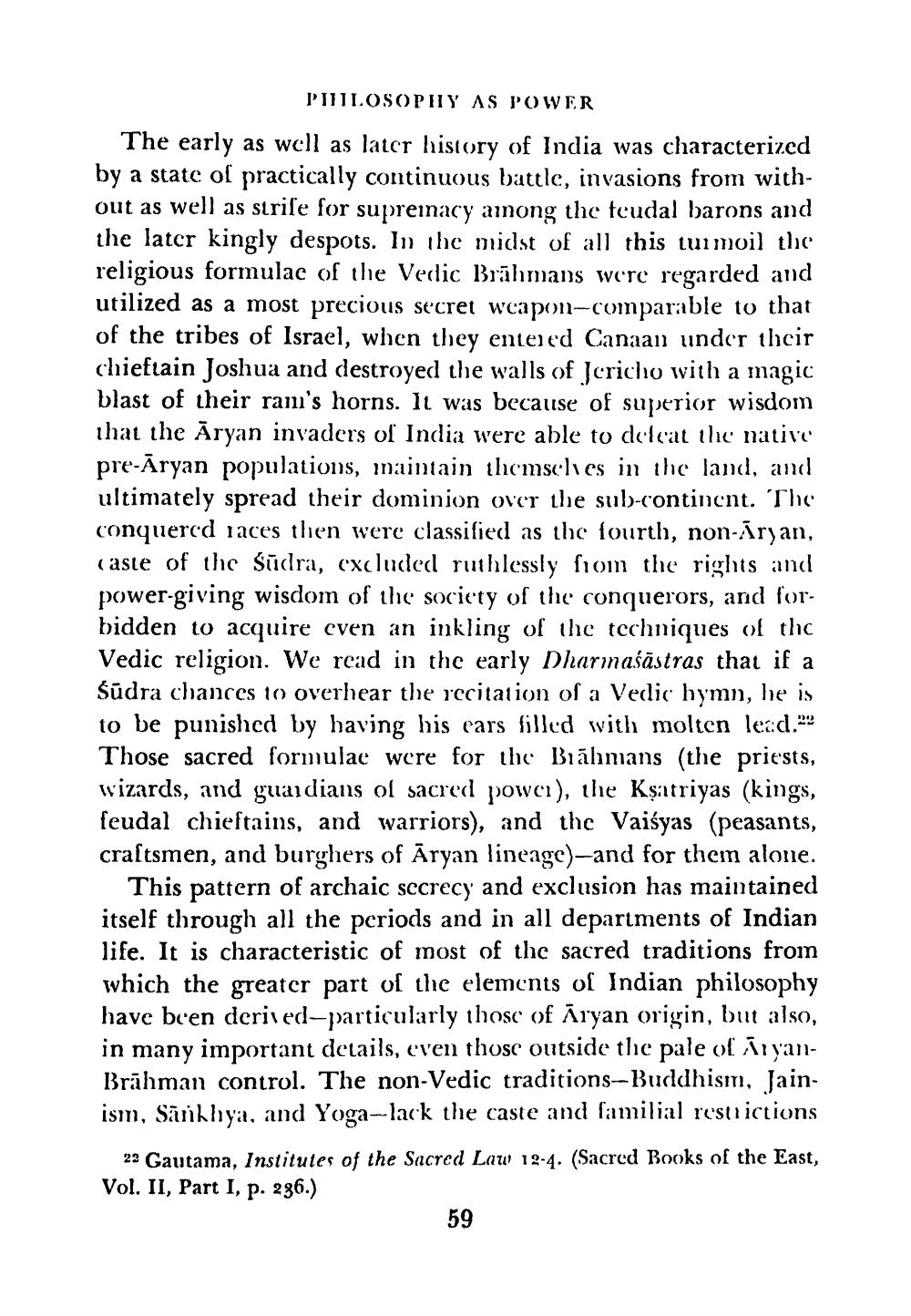________________
PHILOSOPHY AS POWER
The early as well as later history of India was characterized by a state of practically continuous battle, invasions from without as well as strife for supremacy among the feudal barons and the later kingly despots. In the midst of all this turmoil the religious formulae of the Vedic Brahmans were regarded and utilized as a most precious secret weapon-comparable to that of the tribes of Israel, when they entered Canaan under their chieftain Joshua and destroyed the walls of Jericho with a magic blast of their ram's horns. It was because of superior wisdom that the Aryan invaders of India were able to defeat the native pre-Aryan populations, maintain themselves in the land, and ultimately spread their dominion over the sub-continent. The conquered races then were classified as the fourth, non-Aryan, caste of the Sudra, excluded ruthlessly from the rights and power-giving wisdom of the society of the conquerors, and forbidden to acquire even an inkling of the techniques of the Vedic religion. We read in the early Dharmaśāstras that if a Šūdra chances to overhear the recitation of a Vedic hymn, he is to be punished by having his ears filled with molten lead." Those sacred formulae were for the Brahmans (the priests, wizards, and guardians of sacred power), the Ksatriyas (kings, feudal chieftains, and warriors), and the Vaisyas (peasants, craftsmen, and burghers of Aryan lineage)-and for them alone.
This pattern of archaic secrecy and exclusion has maintained itself through all the periods and in all departments of Indian life. It is characteristic of most of the sacred traditions from which the greater part of the elements of Indian philosophy have been derived-particularly those of Aryan origin, but also, in many important details, even those outside the pale of AryanBrahman control. The non-Vedic traditions-Buddhism, Jainism, Sankhya, and Yoga-lack the caste and familial restrictions
22 Gautama, Institutes of the Sacred Law 12-4. (Sacred Books of the East, Vol. II, Part I, p. 236.)
59




